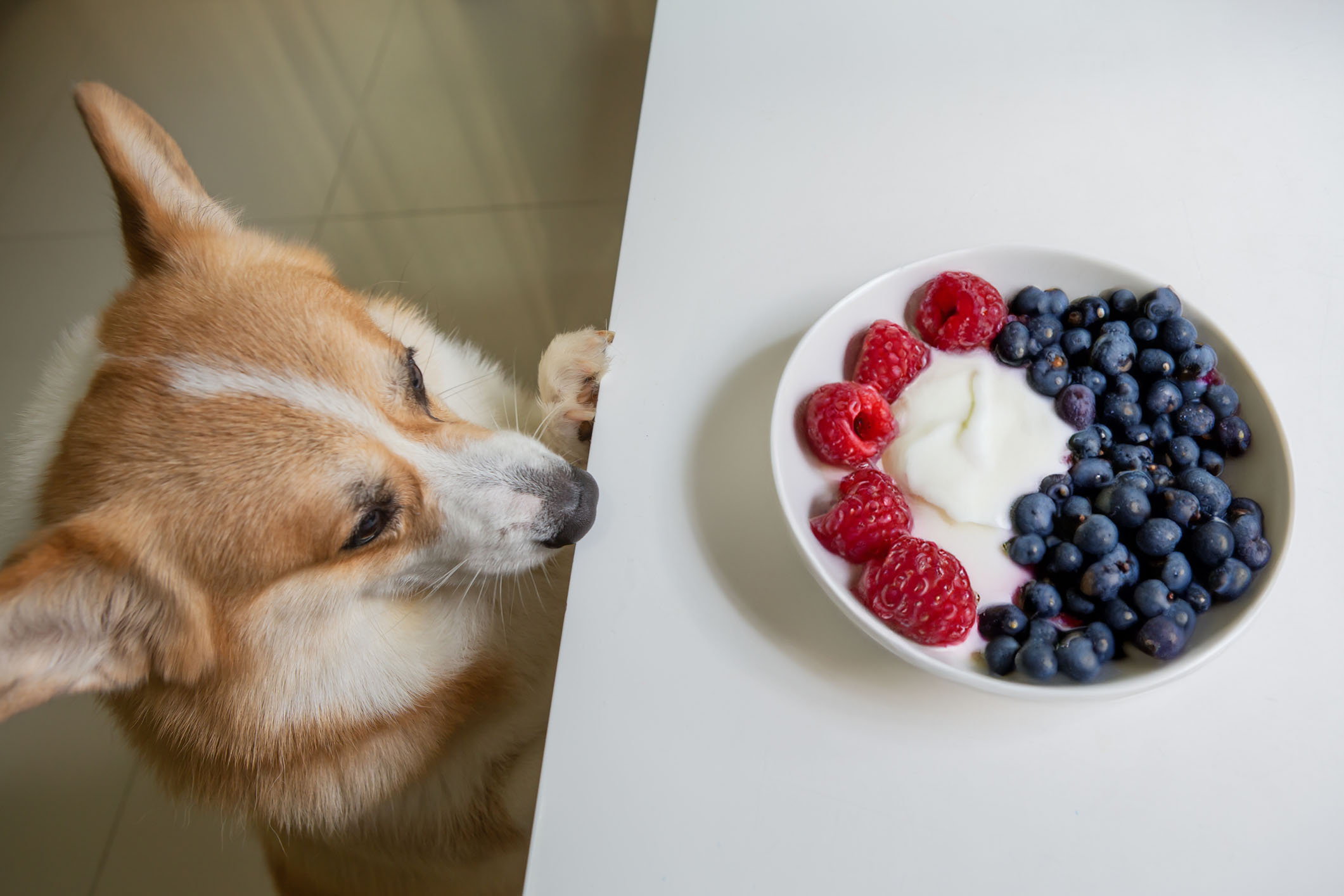Can Dogs Eat Yogurt?
Doctor of Veterinary Medicine

While efforts are made to answer all questions as quickly as possible, if an immediate answer is required or if your pet is in need of urgent or emergency care, contact your pet's veterinarian immediately.
Doctor of Veterinary Medicine

You will receive an answer from Dr. Lindsay and our vet/tech team as soon as possible, usually the same day.
All answers are provided for informational or educational purposes only, and are intended to be a supplement to, and not a substitute for, the expertise and professional judgment of your pet's veterinarian.
It may be necessary to consult your pet's veterinarian regarding the applicability of any opinions or recommendations with respect to your pet's symptoms or medical condition.
CloseDoctor of Veterinary Medicine

An error has occurred, please reload the page and try again.
CloseDoctor of Veterinary Medicine

While efforts are made to answer all questions as quickly as possible, if an immediate answer is required or if your pet is in need of urgent or emergency care, contact your pet's veterinarian immediately.
There is no answer related to your question

Yogurt is the perfect snack: gut-healthy, full of protein, and delicious to boot. Whether you like yours low fat, Greek, with fruit on the bottom, frozen, or straight from the tub, you’re sure to get puppy-dog eyes on you every time you savor this snack.
Can dogs eat yogurt? Yes, dogs can eat yogurt! Most yogurt is perfectly safe for dogs in moderation. Learn which types of yogurt are best for dogs and what to look out for when choosing between varieties and flavors.
What’s In Yogurt?
Yogurt is made by heating milk and adding live active cultures. Live active cultures are strains of bacteria that are beneficial to your digestive system, and you may also know them as probiotics.
During the fermentation process, live active cultures feed on lactose, the naturally occurring sugar found in milk. This process produces lactic acid, which changes the texture and adds a tangy flavor.
Does Yogurt Trigger Lactose Intolerance in Dogs?
Many dogs are lactose intolerant. This is because after puppyhood, they no longer produce lactase, the digestive enzyme needed to break down lactose. Undigested lactose in the gut can cause pain, gas, and diarrhea in dogs that suffer lactose intolerance.
However, yogurt will not trigger lactose intolerance in dogs because it is low in lactose. After the fermentation process, most of the lactose has been broken down by the live active cultures. That means your dog can enjoy most varieties of yogurt without suffering symptoms of lactose intolerance.
What Kind of Yogurt is Best for Dogs?
The best type of yogurt to give your dog is plain, unsweetened, unflavored Greek yogurt. Greek yogurt is higher in protein, lower in fat, and lower in lactose than other varieties. It also has a thick, spreadable texture that’s perfect for filling a Kong or mixing into your dog’s meals.
Kefir, yogurt’s drinkable cousin, is a close runner up, with less protein but more live active cultures than Greek yogurt.
Is Yogurt Good For Dogs?
Yogurt is a good source of protein, calcium, and B vitamins for dogs. Yogurt also contains beneficial bacteria that can aid digestion. However, if your dog has gut issues, they’re more likely to benefit from species-specific strains found in probiotics for dogs that are designed to survive the gastric tract.
What To Avoid In Yogurt for Dogs
Most varieties of yogurt contain added ingredients like sugar, artificial sweeteners, candy, nuts, and other additives that may be unsafe for dogs.
Sugar, while not an immediate danger to dogs, can contribute to dental disease and obesity. It’s best to avoid yogurt that contains added sugar.
Artificial sweeteners, notably xylitol, is highly toxic to dogs, even in small amounts. Xylitol is a sugar alcohol that may show up in the ingredients list under different names like birch sugar, wood sugar, and birch sugar extract. Always check the ingredients before offering your dog a taste of yogurt, and avoid feeding if there are artificial sweeteners or any ingredients that you do not recognize.
Raisins, macadamia nuts, chocolate, and grapes are other foods that may be included in yogurt or served with yogurt that are highly toxic to dogs.
Yogurt can also be high in fat. Dogs are sensitive to fat, some more than others, and can develop acute pancreatitis, a serious inflammatory condition of the pancreas that can occur after a fatty meal. Opt for low-fat yogurt if possible, or keep your dog’s serving small, especially if they have a history of pancreatitis or are of a genetically predisposed breed.
How Much Yogurt Can My Dog Have?
Even though yogurt is generally safe for dogs and does not cause lactose intolerance symptoms, it can still cause gastric upset if given in excess. Overindulging in any food, especially one that your dog does not eat often, can cause mild symptoms like diarrhea.
For small dogs, try offering your dog about a tablespoon of yogurt per ten pounds of their weight. Larger dogs can have up to one quarter cup of yogurt.
You can incorporate yogurt into your dog’s diet in many fun, healthy ways. You can use yogurt to frost a homemade doggy birthday cake, as a base for dog-friendly frozen yogurt, freeze into an icecube trap, mix with berries, fill a Kong, or just let your dog lick it right off a spoon.
As with any dietary changes, introduce yogurt slowly and talk to a veterinarian if you’re unsure how much your dog can have - especially if your dog has any dietary restrictions or chronic conditions.
 Swipe
Swipe


















